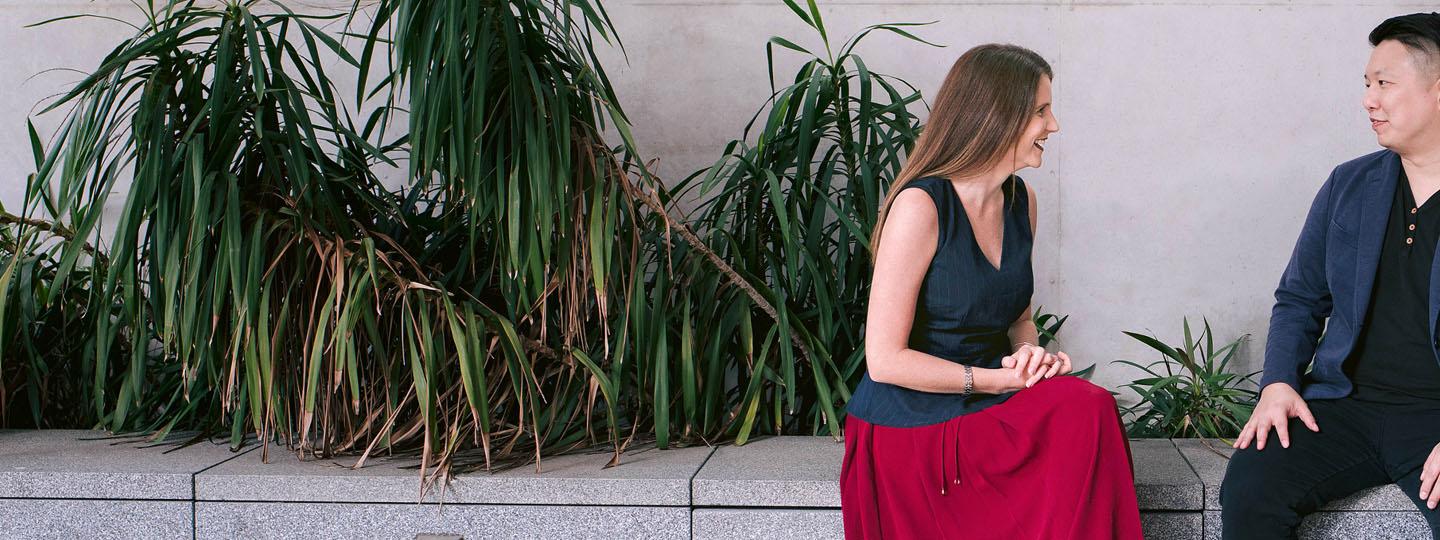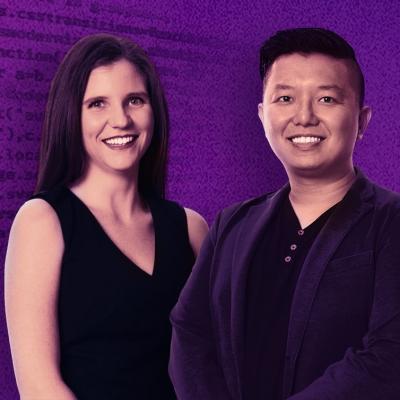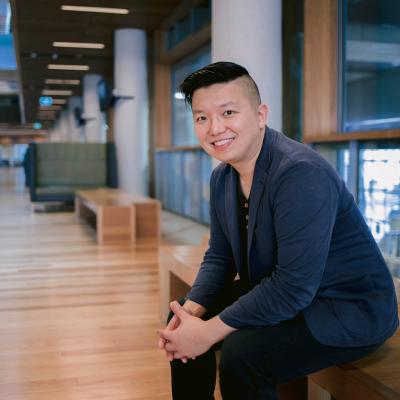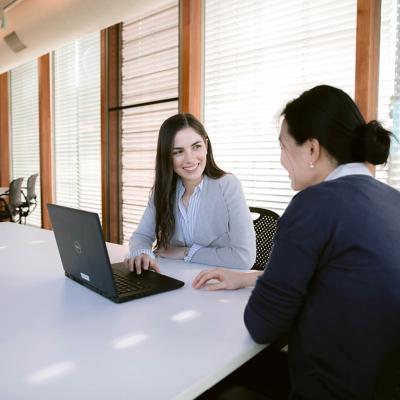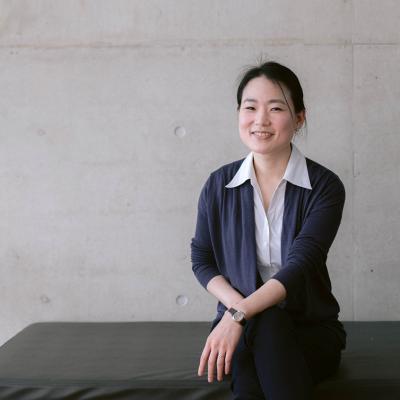Considering studying computer science at university? You may have lots of questions. We're here to help you find answers.
- Is computer science a good degree?
- What hands-on experience can you get while studying computer science?
- How difficult is computer science?
- What jobs can you get with a computer science degree?
- How useful is a computer science degree?
We've interviewed a UQ graduate and academic to find out. Holly is a software architect with IBM's security elite team and Professor Ryan Ko is Chair and Director of UQ Cyber Security. They’ve teamed up to answer some of your questions and uncover how UQ can give you the skills you need to face the future, even when you don't know exactly what the future will look like.
Let's find out if computer science sounds like the study area for you.
What is it about UQ's approach that makes us the most employable graduates in the state?
Ryan: UQ blends the theory and concepts into actual practice. Its reputation makes it an attractive partner with industry partners. So we get the best industry partners and as a result, you get all the graduates experiencing a little bit of the best of both worlds. The best in education and also the best in the job.
Holly: I definitely had that experience, I got to go straight into a role that was a full time job because I'd done an internship that UQ had helped me get during my university degree.
Ryan: And then the place where you interned, I guess, found that you're talented and they wanted to keep you.
Holly: Yeah, exactly. And that's the best thing about the internship programs – they really give you the opportunity to put your toes in the water before you go into industry.
Do you think the engineering mindset helped you to be a better problem solver than people from traditional fields?
Holly: Yeah, I think the engineering problem solving mindset is very different to a lot of different professions – the way we approach problems and try to isolate details that don't matter from the details that we really need to focus on and to solve. I think with that mindset, not just for cyber security but even day to day life, I find myself using those skills as well.
What did you learn about yourself while you were studying at UQ?
Holly: The main thing I learned about myself was just how I learn, and I found that the best way for me to learn something and to really connect with a topic is to actually have hands-on experience. And in fact, I found that after I did a few internships and started working in industry, I really became passionate about the university work as well, because I could see how it applied to the real world.
What opportunities do your students have to get hands-on experience in our industry?
Ryan: There are many opportunities. For example, with capstone programs you can either do an internship or a placement with the industry partners. When we expose students to potential projects in research, where the industry partners may have this problem that they want to solve, but they don't have the bandwidth to do it, a student and some academics work with them on these longer term problems.
When the students actually participate in these projects they get to understand and be mentored by industry partners. In the feedback on the capstone projects, some of the companies said it was like getting a consultant, full time.
Holly: I think with the research element (there's so many amazing minds in and around the university), having the opportunity to work with those people and learn from absolute experts in their field is pretty special.
If you could give one piece of advice to a job candidate, what would it be?
Holly: I think if you're applying for a job, the most important thing you can do is make sure you're prepared for the role that you're applying for. It starts right from when you write your resume – when you're putting it together you want to be ticking the boxes of what that employer is looking for in an employee.
I think a really important thing is getting involved in not just your university work, but your extracurricular as well. If you want to work in cyber security, do some hackathons, put together some code, put together a GitHub so you can share the stuff that you've done. It's really valuable so an employer can see that you're not only smart, but that you're passionate about the industry too.
I think if you have the initiative to go out there and learn these things on your own – not just through mandated courses – it really shows that you're interested in expanding your knowledge about the area and that's really valuable in a company as well.
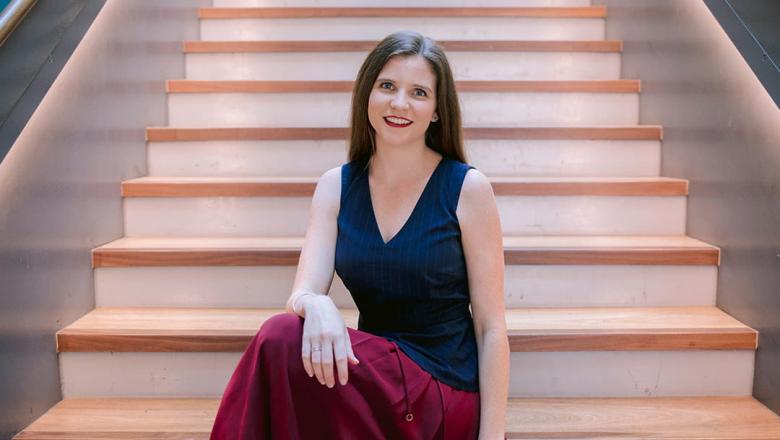
How do you prepare your students for the future when we don't know what the future looks like?
Ryan: The first thing I want to focus on is always the mindset that students have to be prepared for when they graduate. So if they take a degree I'll ask them, usually at the beginning of the lectures, to just think about what the world is going to be like in a few years’ time when they graduate and they're in the workforce. That puts them into future thinking mode.
The other thing is also to think about whether the degree matches their passions, and if they can mould it into a niche that aligns with the ultimate demand in the market in a few years’ time.
When I teach, I try to show them some of the trends that are informed by marketing research companies, or some of the latest research that we are seeing developed by industry, government or other researchers. We try to see if that research becomes actual products or services, or even proofs of concept. Then we can prepare students for the future.
We also want to focus on the lifelong learning aspect. So, we tend to shape assignments to have an element of this. We want to encourage our students to discover a little bit for themselves and have the confidence to actually express what they feel about the subject, without any early judgment. Then they're able to hone their skills, articulating some of those things that they are passionate about.
Holly: I think in cyber security that's so important to have, because the cyber security landscape on its own is evolving so quickly. If you look at the reports, each year it's a completely different type of threat or there's new emerging threats coming out all the time so those problem solving skills are actually the really important ones to have.
How did the way you learned at UQ give you the skills you need to face an unknown future?
Holly: There were a number of skills that I learned at university which weren't just technical skills, and I think those were really important. Just as important as the technical skills. In my role now, there's a lot of things we have to do to present and articulate problems to customers or to each other in the team. So it's really important to be able to take a complex problem, and then be able to boil that down to something that somebody can understand.
I've travelled around the world with IBM presenting to customers and so much of that opportunity has come from the skills that I learned at UQ in presenting engineering concepts. Those soft skills are just as important as the technical skills that I learned at UQ.
What are some of the coolest jobs your former students are doing?
Ryan: There are a lot of very cool jobs. Some of my students have gone on to become senior management in leading security teams that actually support large customers.
So one of my students used to be a McDonald's manager for 10 years. After he graduated, he went to Deloitte through matchmaking him with some of the research projects with them. They found that he was really great at what he was doing so they hired him and in about one and a half years he got promoted three times. So, I felt a really great sense of satisfaction when I heard his story.
Some of my other students had some experience working with the likes of Interpol, and a few other prominent organisations. As a result, before they graduated they were actually hired, so that's another satisfying part of my job.
Explore the Bachelor of Computer Science or discover what it's really like to study other programs at UQ.

